Гуманизм, новая идея
Гуманизм, новая идея
“The affirmation of human commonality and dignity is something that is no less urgent today than at any time before,” says Professor Sanjay Seth (India), in his introduction to this special feature (p. 6). He puts forward a number of thoughtprovoking ideas on contemporary humanism, like questioning the notion of a singular Reason, the cohabitation of different visions of morality developed around the world, or the need for a global form of justice. Issues like these are discussed in depth from a range of viewpoints by Nigerian-born Michael Onyebuchi Eze (p. 10), Asmina Karavanta from Greece (p. 14) and Paulette Dieterlen from Mexico (p. 16).
The humanist turn that is currently underway draws on humanist traditions in all cultures, according to the German philosopher Oliver Kozlarek (p. 18). Indeed certain aspects of contemporary Islamic philosophy have their roots in the very idea of humanism (p. 22), says Mahmoud Hussein, an Egyptian political scientist and Islamic scholar. And the doctrines of Confucius and Mencius could be seen as a model for the development of the new humanism imagined by Professor Liu Ji of China (p. 25).
If humanist principles are not turned into practice, though, humanism will remain no more than wishful thinking. In these times of globalization, we need to make use of the “envisioning forces” of law to forge a humanist form of justice that is pluralist and open, says the French lawyer, Mireille Delmas Marty (p. 28). Among other evidence to support her case, she cites two major challenges of modernity: climate change and new digital and biomedical technologies, which are also discussed by Milad Doueihi (USA) (p. 32), Ruth Irwin, from New Zealand (p. 34), Michal Meyer of Israel (p. 36) and Salvador Bergel from Argentina (p. 39).
To conclude this special feature, the Brazilian senator, Cristovam Buarque outlines his proposal for a new humanism based on seven pillars: planetary politics, respect for diversity, respect for the environment, equal opportunities, production controlled by man, integration through education and ethical modernity (p. 41).
Our guest for this issue is the American actor and film-maker, Forest Whitaker, recently appointed UNESCO Goodwill Ambassador. He is committed to the cause of child soldiers, explaining what drew him to this barren and tragic universe, so far removed from the luxury of Hollywood (p. 44).
The future of the book is a subject close to the heart of the Chilean writer, Antonio Skármeta. Author of the novel, Burning Patience (which inspired Michael Radford’s film Il Postino) he predicts that the various types of media will continue to exist, side by side – the digital book, that faithful ally of research and information, and the paper book, which is ideally suited to “non-utilitarian imagination” (p. 47).
To mark International Day of Persons with Disabilities (3 December), we will be publishing an interview with the American director Roger Ross Williams, whose film Music by Prudence won him an Oscar for best short documentary. He tells of meeting a young Zimbabwean woman, Prudence, who lost both her legs, yet, through her singing, managed to overcome a number of obstacles, including rejection by her family, discrimination and poverty (p. 51).
Jasmina Šopova, Editor-in-chief





